What Job Won’t Make Me Hate Mondays? How to Find a Job You Don’t Dread
If you’ve ever wanted to hide under the covers or hit snooze until Tuesday, this is for you. We dig into why so many people dread Mondays—and how to find a job that fits your energy and personality, so the workweek doesn’t feel like something to survive.


Back
6 mins read
There’s nothing like that sinking Sunday night feeling—the one that creeps in around 4 p.m. and tightens its grip the closer you get to Monday morning.
If you’ve ever stared at the ceiling thinking, I can’t do this again, you’re not the only one. One study found that 81% of people consider Monday the most stressful day of the week, and 70% report feeling high anxiety on Sunday in anticipation of going back to work.
Monday dread is so baked into our culture, it’s been immortalized in everything from sitcoms to songs—and yes, more memes than we can count. Think of The Office, where Michael Scott careens through Monday morning with chaotic optimism and a bottomless cup of coffee. Or Friends, where early Rachel Green is stuck in a job she hates, quietly spiraling between paychecks and bad decisions.
The Mamas & The Papas warned us that “Monday, Monday” can’t be trusted. The Bangles gave us “Manic Monday.” Karen Carpenter told us that rainy days and Mondays always got her down.
Yeah, my Gen X is showing. But more recently, Twenty One Pilots nailed it in one line: “Wake up, you need to make money.” If that’s the only reason you get out of bed on Monday morning… something’s off.
As a psychologist—and someone who’s been there—I can tell you that sense of dread isn’t just in your head. More importantly, you’re not meant to live with it forever.
Related: 12 Legit Reasons to Call Out of Work
Why People Dread Going to Work on Monday
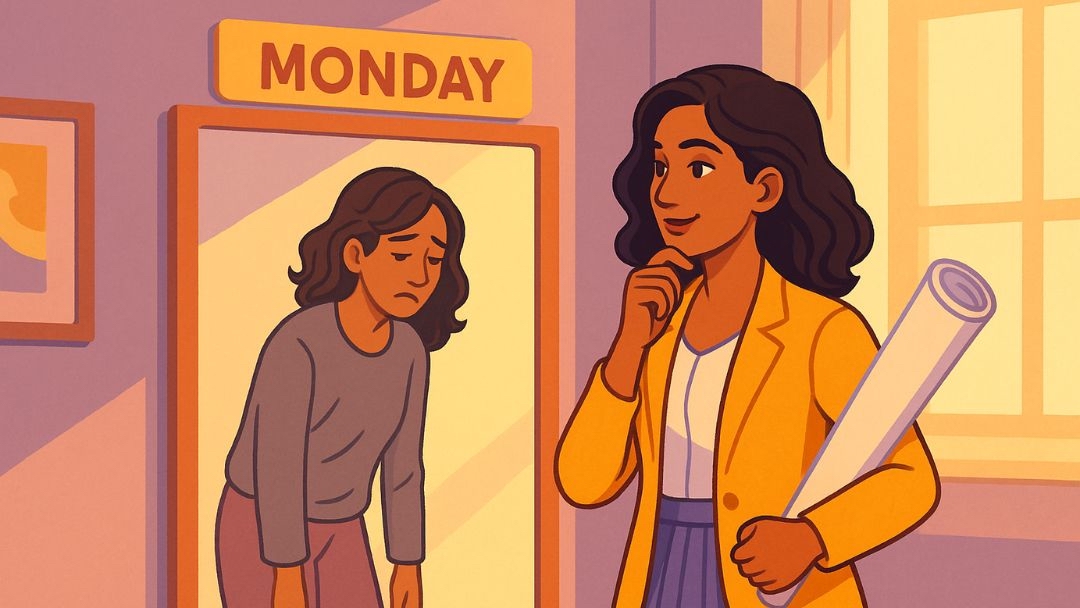
For some, it’s the job itself. Maybe it feels pointless, exhausting, or like it’s draining your life one spreadsheet at a time.
For others, it’s the environment: a boss who micromanages, a co-worker who stirs up drama, or a team culture that rewards burnout over balance.
And sometimes, it’s the feeling of being trapped in a job that doesn’t match your values or energy rhythms.
Here’s why that dread is more than just a bad mood:
- Research suggests that serious heart attacks are more likely to occur on Mondays, which is attributed to increased stress and higher cortisol levels. Higher heart attack rates also occur on Sunday, likely due to the "back-to-work dread."
- Burnout is one of the most common drivers of Monday dread, especially in roles that demand more energy than you have to give. Chronic stress, lack of control, and emotional exhaustion can make the week feel unmanageable before it even starts.
- Historically, suicide rates peak on Mondays, particularly among young adults ages 10 to 29. The cause isn’t fully understood, but the pattern is consistent.
- The “Sunday scaries” are a well-documented form of anticipatory anxiety, especially among Millennials and Gen Z. They’re often triggered by looming deadlines, poor boundaries, or the whiplash of going from weekend self to weekday expectations.
When that dread becomes routine, it’s not a lack of gratitude. It’s a signal that something isn't working.
My Mondays Look Different Now—But That Wasn’t Always True
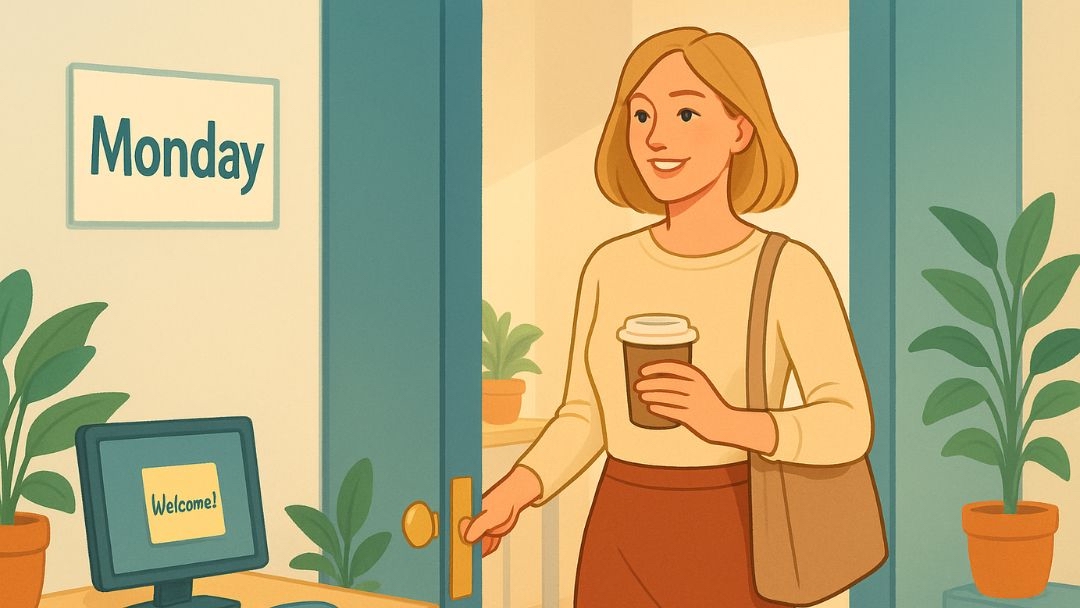
I’ve been self-employed for a while now—writer, editor, content strategist. These days, Mondays don’t scare me. I don’t wake up with anxiety. I don’t have to psych myself up just to start the day because entrepreneurship fits me. That doesn’t mean every Monday is magical, but it does mean my work no longer feels like a punishment.
But it hasn’t always been that way.
Up until 25 years ago, I worked as a therapist running a residential youth shelter. I loved the kids. I believed in the mission. But even in a role I cared about deeply, there were things that drained me—never-ending paperwork, constant logistical chaos, being on-call 24-7, pretty much 365 days of the year, and a school consulting raat a school where I clashed so badly with the principal that I’d feel physically sick by Sunday night.
Even meaningful work can bring Monday dread, especially when something in the setup doesn’t fit who you are.
Hate Mondays? It Could Be the Job, Not You

A job can look great on paper and still feel like a slow leak to your energy. You might be good at it. People might even praise you for it. But inside, you're counting down the hours and questioning your life choices.
Ask yourself:
- Does work energize me or drain me?
- Am I stressed by things that aren’t even part of my actual role?
- Do I spend my weekends dreading the reset button?
If you're nodding along, it might not be about Mondays at all. It might be about career fit.
Generational Shift: Gen Z and Millennials Are Saying “No”
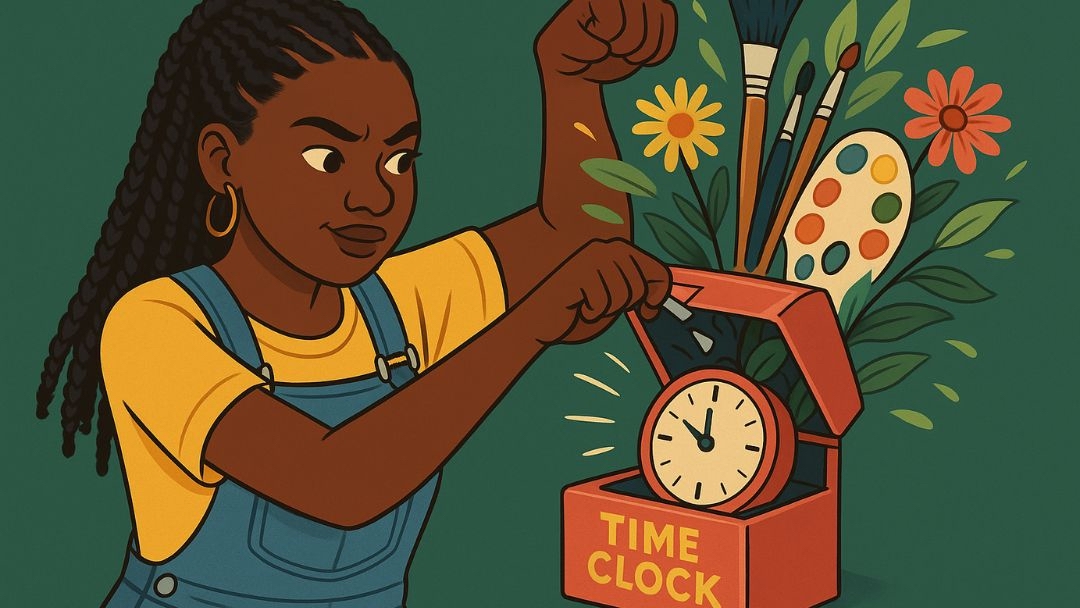
Unlike past generations, Gen Z and Millennials are pushing back against hustle culture. They want flexibility, meaning, boundaries, and better mental health. They’re not waiting until retirement to feel alive.
I’m Gen X, and we were taught to keep our heads down and do what needed to be done—even if it chipped away at us. But like the younger generations, more of us are starting to question the grindset mentality.
Whether you're 22 or 52, the answer isn’t always to quit and start over. But it might be time to plan more intentionally—whether that means exploring new career paths, building new skills, or simply figuring out what aligns with who you are now, not who you were ten years ago.
So… What Job Won’t Make You Hate Mondays?
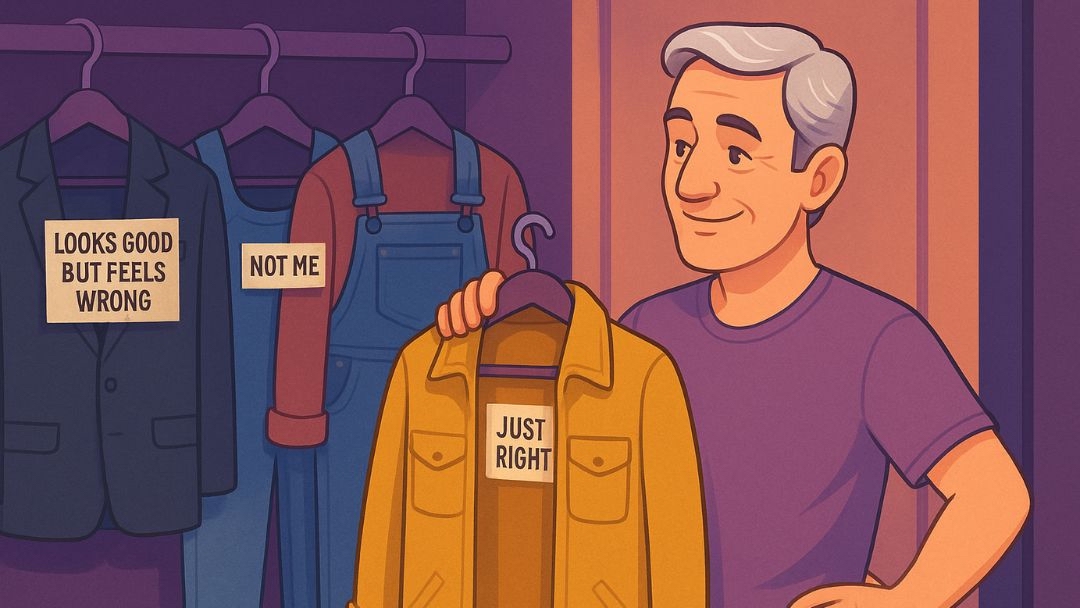
There’s no single dream job for everyone. But the kinds of jobs that don’t make you dread Monday mornings usually share this in common:
- They align with your personality and energy.
- They give you some sense of purpose or progress.
- They don’t require you to fake your way through the week.
- They offer the kind of structure, creativity, or autonomy that fits you.
Some people thrive on routine. Others need variety. Some want collaboration; others want quiet focus. The key is understanding what works for you—and then building around it.
Where to Go from Here
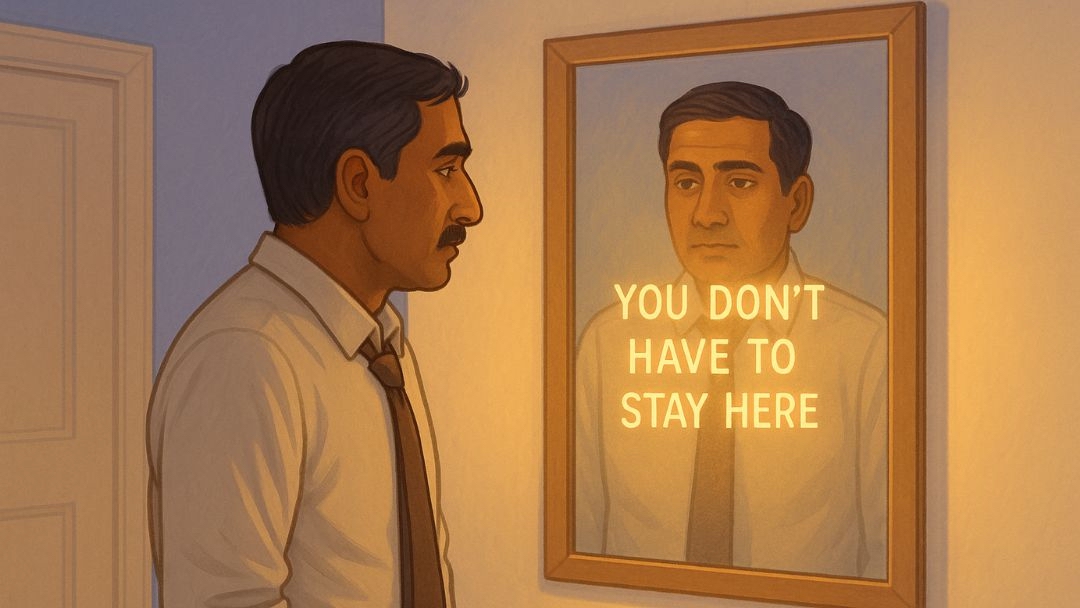
If you’re stuck in a cycle of Sunday blues, you don’t need to overhaul your life overnight. But you can start taking steps to find something that fits better.
Here’s what helps:
- Track your energy and mood throughout the week.
- Pay attention to what drains you vs. what lights you up.
- Explore roles, teams, or environments that feel more like you.
- Use a solid personality or career-fit tool to get real clarity.
- Take low-risk steps—side projects, internal shifts, freelance trials—before making bigger moves.
Because when the job fits, Mondays don’t feel like a threat.
Try a Career Test That Goes Deeper Than Job Titles
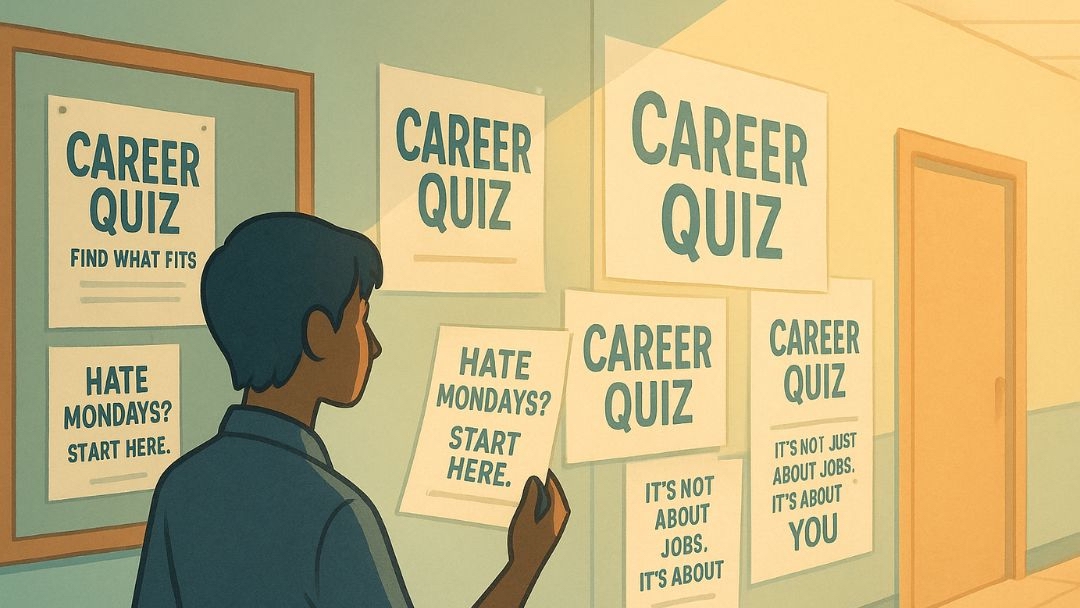
If you're wondering what kind of work would make you actually look forward to Monday, you're not alone—and the answer probably isn’t in another random quiz with canned suggestions.
The BrainManager Career Test is grounded in two powerful psychology frameworks: the Holland Code (RIASEC) and the Big Five personality traits. That means it doesn’t just ask what you like—it explores how you think, work, and relate to others.
By combining your interests (Holland) with your core personality traits (Big Five), this test gives you a more complete picture of what kinds of roles and work environments will actually energize you.
If you've ever said, "I know what I’m good at, but I don’t know what I’d enjoy," this is the test to take.
Discover the Personality Style Behind Your Work Patterns
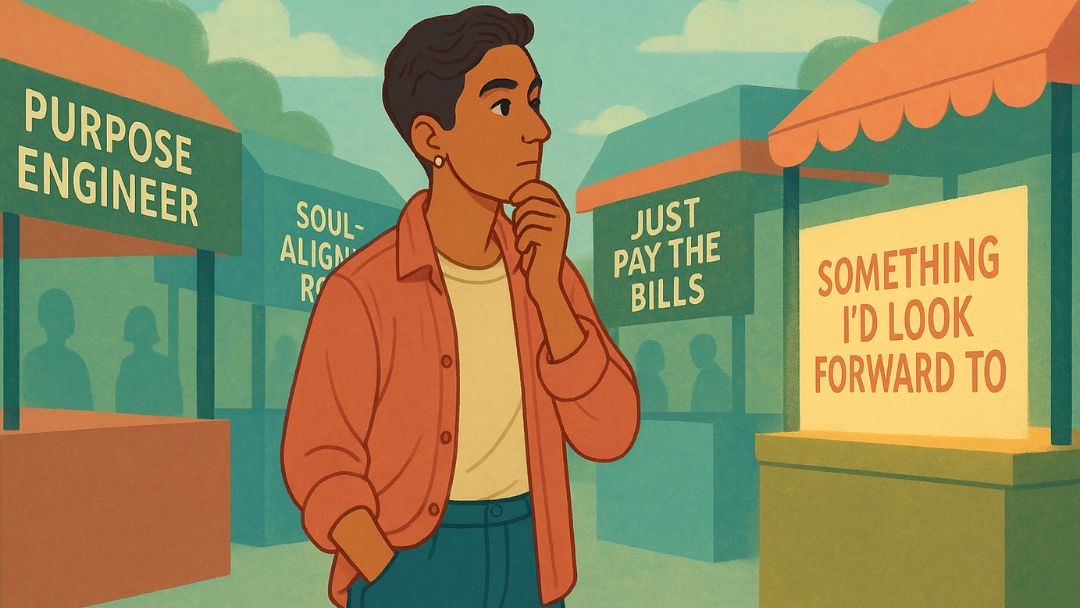
Another piece of the puzzle? Understanding your core personality—not to limit you, but to clarify how you function best.
The BrainManager 16 Personality Test is based on the popular four-letter MBTI framework (like INFJ, ESTP, or ISFP), but with a modern, research-backed update. It helps you understand where your energy goes, how you make decisions, and what kind of work dynamics help you thrive.
If Friday feels like release and Sunday feels like a countdown, your job might be pushing you in a direction that doesn’t match who you are.
Knowing your personality type can help you:
- Recognize what energizes or exhausts you
- Set boundaries that actually stick
- Find a rhythm that feels like you, not a constant struggle
When you understand how you’re wired, it becomes a lot easier to make work work for you—so Monday doesn’t feel like a battle before it even begins.
The Bottom Line
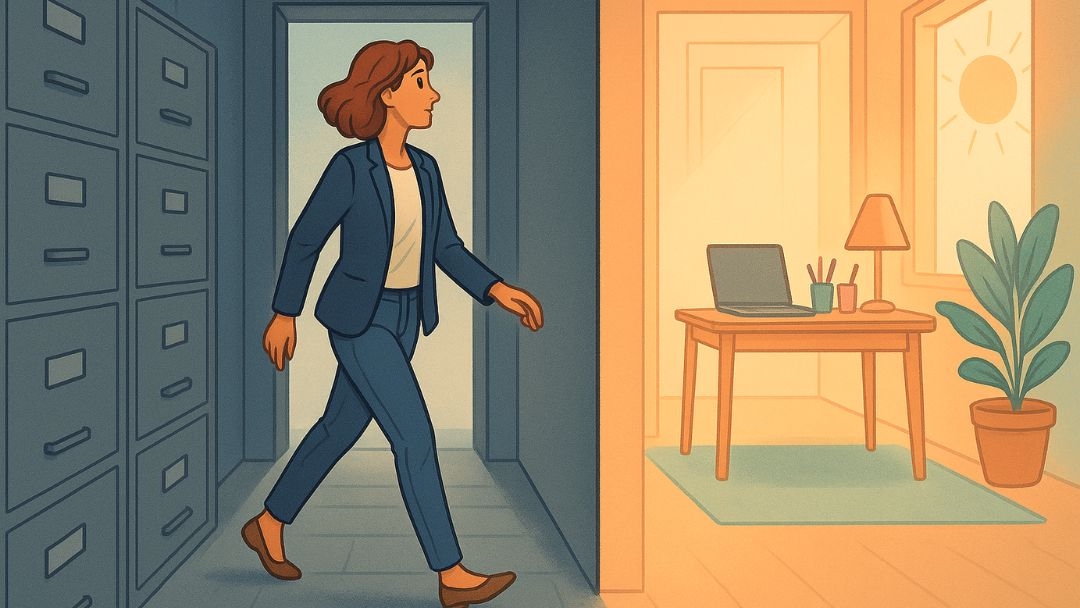
If you hate Mondays, don’t brush it off. That feeling isn't just a quirk or a bad attitude—it might be a sign that something deeper is going on.
Sometimes it’s the job. Sometimes it’s the culture or the fit. But sometimes, it’s something more serious—like burnout or depression—especially if that dread starts creeping into the rest of your week, your relationships, or your health.
Long-term stress and emotional exhaustion take a toll. If your work is affecting your sleep, motivation, or mood, don’t just push through. Check in with yourself. Reflect. Reach out. Take a test. Start exploring what’s underneath the dread.
There might not be a quick fix, but there is a better way to work. And you deserve to feel okay on Monday morning.


Return to Blog







